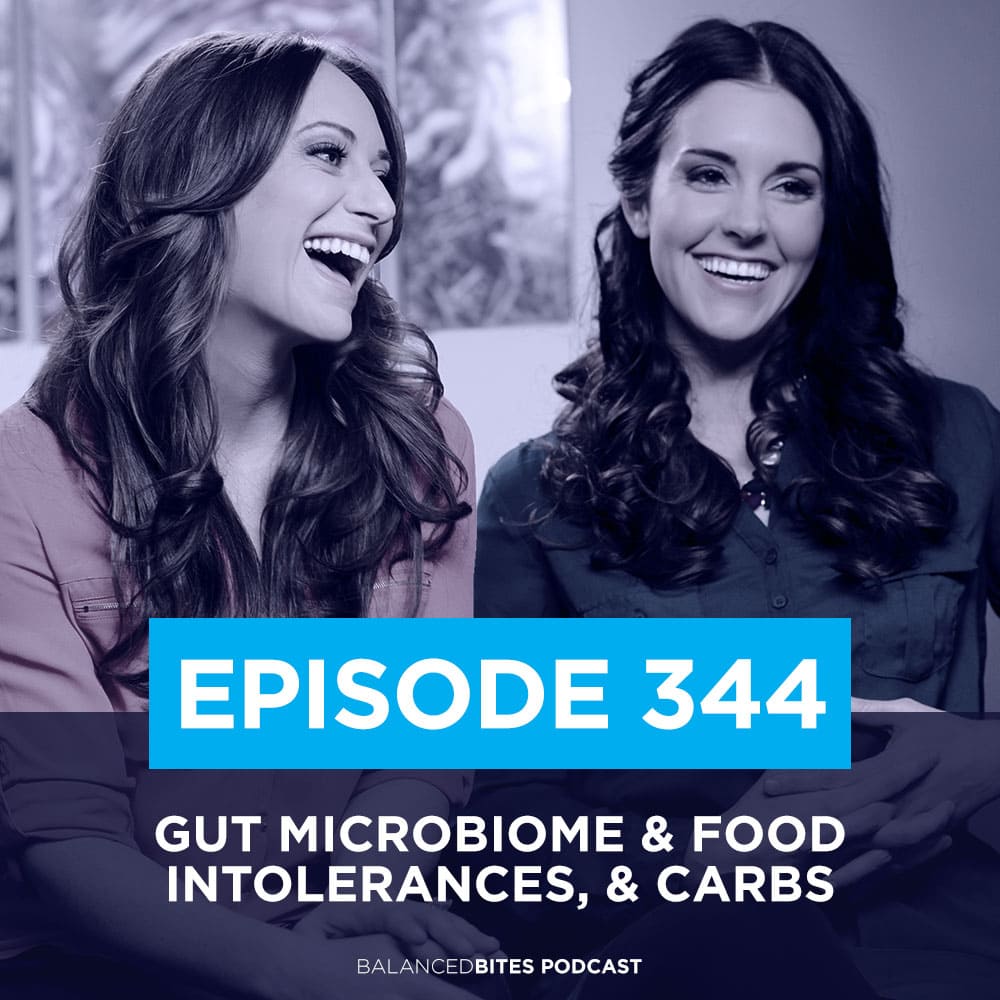 Topics
Topics
- News and updates from Diane & Liz [1:49]
- Balanced Bites spices
- Balanced Bites Master Class
- What we've eaten so far today [3:24]
- Healing food intolerances [8:51]
- Distinction between types of carbs [21:52]
- Stress relieving techniques [26:27]
Subscribe to DianeSanfilippo.com
The episodes are also available in iTunes, Spotify & Stitcher.
Emily Schromm's Body Awareness Project
![]()

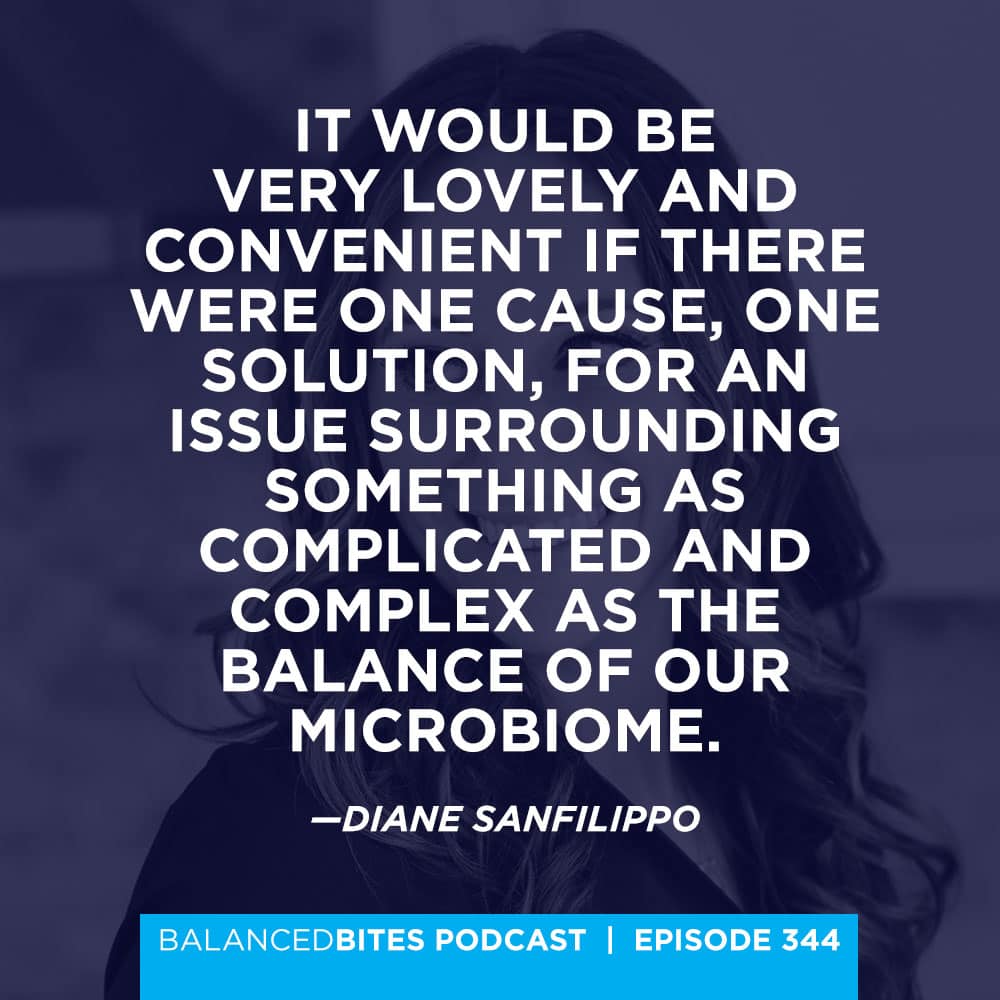
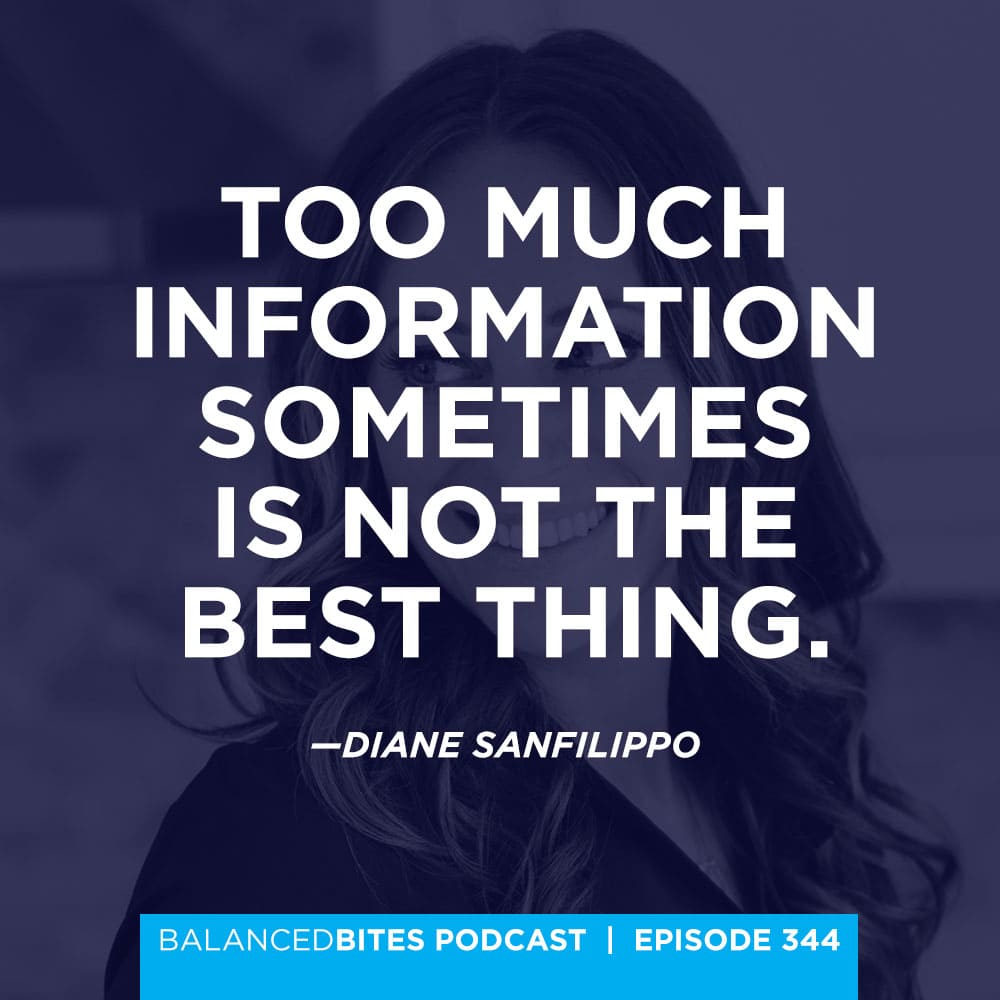
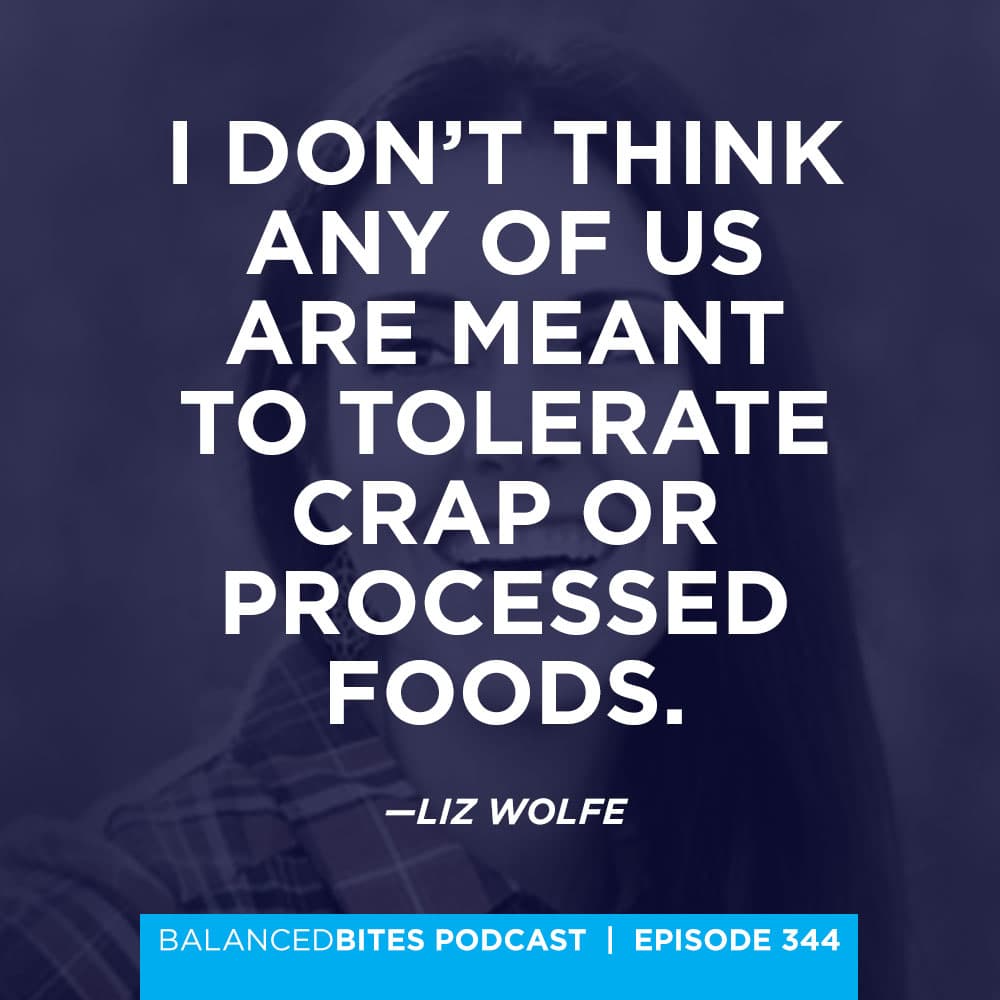
You’re listening to the Balanced Bites podcast episode 344.
Diane Sanfilippo: Welcome to the Balanced Bites podcast. I’m Diane; a certified nutrition consultant, and the New York Times bestselling author of Practical Paleo and the new 21-Day Sugar Detox Daily Guide. I live in San Francisco with my husband and fur kids.
Liz Wolfe: I’m Liz; a nutritional therapy practitioner, and author of the Wall Street Journal best-seller Eat the Yolks; The Purely Primal Skincare Guide; and the online program Baby Making and Beyond. I live on a lake in the mystical land of the Midwest, outside of Kansas City.
We’re the co-creators of the Balanced Bites Master Class, and we’ve been bringing you this award-winning podcast for more than 6 years. We’re here to share our take on modern healthy living, answer your questions, and chat with leading health and wellness experts. Enjoy this week’s episode, and submit your questions at http://blog.balancedbites.com or watch the Balanced Bites podcast Instagram account for our weekly calls for questions. You can ask us anything in the comments.
Remember our disclaimer: The materials and content within this podcast are intended as general information only, and are not to be considered a substitute for professional medical advice, diagnosis, or treatment. Before we get started, let’s hear from one of our sponsors.
Diane Sanfilippo: Today’s podcast is sponsored by Perfect Keto. Dr. Anthony Gustin and his teams have created lines of supplements that are super clean and effective, no matter what your dietary needs. I’ve been blending their MCT oil powder into my matcha latte lately. Not only are MCTs, medium-chain triglycerides, a premium source of your body’s preferred type of energy and help to fuel your brain and body, but there’s also no added taste, and it makes your coffee, or matcha, wonderfully creamy. Check them out at www.PerfectKeto.com and use the code Balanced for 20% off at Perfect Keto and their sister products, Equip Foods.
1. News and updates from Diane & Liz [1:49]
Liz Wolfe: So, Diane. What’s up with you this week?
Diane Sanfilippo: Well. I’m hoping, because we’re being so good about recording podcast episodes a little ahead of time. I’m hoping by the time this airs Balanced Bites Spices will be back. They are available at Kasandrinos.com. So if indeed they’re back and for sale, that’s where you can find them, over at Kasandrinos. You can always check out the Instagram page, just at Balanced Bites for details, recipe and meal inspiration, giveaways. Hoping to do some fun collaborations with some other food brands that we love. So that will be really fun, as well. So stay tuned for all of that. That’s kind of the biggest update, I think.
And then collaboratively, we have the Balanced Bites Master Class opening up again in June. So while it’s April now, June will be upon us very quickly. So I think that’s important to keep in mind. Those are our big updates. {laughs} Was that both of our updates?
Liz Wolfe: I guess so. Do I get to come up with an update?
Diane Sanfilippo: {laughing}
Liz Wolfe: Now you're going to ask me, what’s up with me?
Diane Sanfilippo: What’s up with you?
Liz Wolfe: Nothing. {laughing}
Diane Sanfilippo: {laughs}
Liz Wolfe: I gave my big update two episodes ago when I talked about the move and all that good stuff. So yeah.
Diane Sanfilippo: I think that’s fair.
Liz Wolfe: We’re recording with some decent internet for the first time in many years, once again, which is nice.
Diane Sanfilippo: That’s a big update. Yeah.
2. What we’ve eaten so far today [3:24]
Liz Wolfe: Alright. So. We’ll call this segment what I ate so far today. And I’m going to have to really dig deep to remember what I ate so far today. Let’s think here. Ok; breakfast I had some liverwurst with green apple. It’s kind of a good little combo. I wasn’t raised on liverwurst like you were, Diane, so the taste is still not quite my favorite. But I do order the US Wellness Meats liverwurst and braunschweiger in bulk because it’s precooked. It’s premade. You just slice part off. And I put it with a little slice of green apple and enjoy that. My kid huffs it down, she loves it. But I had that. I had some of Juli Bauer’s spaghetti squash casserole. Which I did not make, thankfully, Colleen made that. So we’ve been digging from that. It is one of my favorites. It’s so good.
Diane Sanfilippo: Is it the five-ingredient pizza.
Liz Wolfe: Yes.
Diane Sanfilippo: I think that’s probably one of, if not the most popular recipe on her blog, from what she’s said. I obviously don’t know the stats. But yeah.
Liz Wolfe: It is for good reason. You know how sometimes anything you make with spaghetti squash can be kind of watery. Somehow it’s just not. I don’t know how it works, but it totally works. And it’s really hearty. It heats up beautifully. You know how casseroles just get better in the fridge. So I had that, and I believe we’re going to have some brats for dinner.
Diane Sanfilippo: Well that was extra credit. Because you only had to tell us what you had so far. Because I don’t know what dinner will be tonight. OK, so for context. It’s like 3:40 p.m. where Liz is, right? Are we two hours apart? I can never remember.
Liz Wolfe: Two hours. I’m two hours ahead.
Diane Sanfilippo: What’s wrong with me? So it’s 1:40 here. So this morning I had my matcha latte. Which I have the recipe for at www.blog.balancedbites.com if you haven’t seen it yet. Just go to www.blog.balancedbites.com/matcha. And that is kind of calorie dense. And I sometimes only have that in the morning. And I sometimes have it with food. People always ask me if I’m having that alone or with food. It just depends on how I feel or what I have going on.
So then I went to spin class. And after that I had a big salad that was; I don’t know. It’s kind of a mashup of a bunch of random stuff. So, arugula and some microgreens. I’ve really been into trying to get more microgreens in. Especially broccoli sprouts, or micro broccoli, since it’s so nutrient dense. But arugula, microgreens, feta cheese, marinated onions, which is a recipe from the 21-Day Sugar Detox Daily Guide. Some strawberries. I told you it’s random. And then I have a sausage that is from Teton Water Ranch I think is the name of the company.
Liz Wolfe: Teton?
Diane Sanfilippo: Teton?
Liz Wolfe: That’s like saying Tetanic instead of Titanic. {laughs} Te-ton. Ti-ton.
Diane Sanfilippo: {laughs} Somebody from that company needs to tell me how to say the name of their company. Or the name of the ranch, whatever. Anyway, their cheddar jalapeno brats. Speaking of brats. And I love them, they’re awesome. And then this spicy Swedish mustard on top. So the reason I’m giving so much detail is of course I took a picture of it, because that’s what I do. And it will probably be on Instagram. And maybe; this is a good idea. I will ask Niki, who gets all the podcast stuff together. I imagine that would make her producer of this podcast. I’ll ask her to post this to the Instagram feed for the podcast, so that you guys can see it at a relevant time. Like, during the week that this episode airs. That would be cool.
So Liz, you better go post a picture of your braunschweiger. Which, I think you do, actually, very often.
Liz Wolfe: I’ve been trying to do that. I’ve been trying.
Diane Sanfilippo: You’ve been Instagramming.
Liz Wolfe: US Wellness Meats is hopefully. Yeah, I’ve been Instagramming quite a bit. They actually, they’re great and I have a really great relationship with them. I use their stuff constantly. So we’ve kind of established a relationship. They’re basically my title sponsors now, which is amazing.
Diane Sanfilippo: I love it.
Liz Wolfe: So I’m not actually sharing; I’m not using their stuff more because they’re my sponsor. I’m actually finally trying to make an effort to authentically share what I’m already using on a day to day basis. Because it just makes sense. I just love them so much.
Diane Sanfilippo: Well yay. I love that.
Liz Wolfe: Yeah. I guess that’s some news from me.
Liz Wolfe: The Balanced Bites podcast is sponsored in part by the Nutritional Therapy Association. The NTA trains and certifies nutritional therapy practitioners and consultants (including me; Liz, I’m an NTP), emphasizing bio-individuality and the range of dietary strategies that support wellness. The NTA emphasizes local, whole, properly prepared nutrient dense foods as the key to restoring balance and enhancing the body’s ability to heal.
The NTA’s nutritional therapy practitioner program and new fully online nutritional therapy consultant program empower graduates with the education and skills they need to launch successful and fulfilling career in holistic nutrition. To learn lots more about the NTA’s nutritional therapy programs, go to http://www.NutritionalTherapy.com. Registration is open for their May NTP and NTC courses, so grab your seat today.
3. Healing food intolerances [8:51]
Liz Wolfe: Ok. So, this first question is about the gut microbiome and food intolerances. So the following question came in from Merritt. “I’m an RD, and I’ve had this lingering question on my mind for a long time now. I work with so many patients, including myself, with food intolerances, and wonder why we have them in the first place. I read a book and talked to the author, and he suggested a lot of food intolerances can be “fixed” by changing the gut microbiota. He had a whole protocol to follow. I plan to try out the protocol myself once I’m not pregnant or breastfeeding. It seems logical. I’m familiar with the leaky gut theory in terms of what causes some food intolerances, but let’s assume that’s all healed up and you feel fine, if you don’t eat those certain foods. I guess what I’m getting at is; if we’re healthy, shouldn’t we be able to tolerate a wide variety of foods? I feel like I’m missing a big concept here.”
So, I had some minor thoughts on this, because I think it’s an interesting question. And it might have kind of a more simple answer than we think. Or maybe a less controversial answer than we think. My thoughts here are; yeah, probably. If we’re truly healthy, we probably should be able to tolerate a wide variety of foods. And stressors. And insults that are not necessarily food related.
However; a big asterisk to that is, I don’t think any of us are meant to tolerate crap or processed foods. I think anything that’s not just real food from nature; or at least a close derivative from that. Think applesauce, instead of apples. That’s not something I’m worried about. But when we’re talking about Oreos, or just total garbage food. Fast food; living on stuff like that. That’s a totally different thing. For many reasons; part of that is it concentrates a lot of the bad stuff and gives us a much bigger hit of it.
But there’s also chemicals in there. Like, for example, glyphosate. And I know this is controversial among the pro-GMO crowd. But what is starting to emerge is that glyphosate is likely causing some pretty bad damage to people that have a really high level exposure to it. And I guess high would be kind of a relative thing. People aren’t drinking glyphosate. But people are getting exposed consistently from an extremely early age to “foods”. Whether they are food are not is debatable. That contain glyphosate residue. And that may be a source of major damage to the bodies.
We also are all exposed to environmental chemicals. If you live in a house that’s not a yurt that you built yourself, and stained and sealed with beeswax, you are living in a chemical laden environment. And yeah, everything is a chemical, but I’m talking about chemicals like varnish, and paint, and what’s in carpets, and what’s in our insulation. We are inundated constantly with these things. And they are stressors. The broad term for them is they are stressors. And I think stressors are kind of what ends up messing with our gut, and causing leaky gut or whatever we want to call it. And making it more difficult for our bodies to process the insults. Whether these insults are environmental, emotional, processed food, any of that stuff. All of that exposure probably leads to a predisposition, a vulnerability, to damage.
And we also know this is pretty well understood in the scientific literature, that stress exerts an epigenetic influence. Which can totally change our health profile. And this is a generational thing. I believe we have some pretty good literature that; my friend Amanda Torres, who is the Curious Coconut, who is working with me on Baby Making and Beyond dug up some really interesting stuff about stress, like maternal stress, having an impact on subsequent generations. And I guess we see a little bit of that with Pottinger’s cats, when it comes to the stress coming from nutrient poor food, that type of thing.
But there are all of these things in our world that change how our bodies are able to operate. And something that’s really interesting to me; and this is kind of a Ray Pete-esque type of comment. Because I love his work. I know he’s controversial, but I love him. The question of our metabolism; just overall how well our bodies work, how efficiently our cells are functioning. How well our liver is processing; you know, the word toxins. People get really hung up on. But our livers are responsible for detoxifying and filtering these chemical insults that we get from our environment.
And how well our overall metabolism is working probably has an impact on how well we’re able to deal with these insults from the environment. And a lot of us, unfortunately, have a ton of stress that suppresses our thyroid function, and makes our overall metabolism a little bit more sluggish. There are lots of different ways that we can get around this, and work on it. Like getting a wide variety of phytonutrients.
Diane, were you talking at this episode, or the previous episode. I don’t even remember. You might have just said it. Talking about getting more broccoli sprouts, micro greens, that type of stuff? Broccoli sprouts have a compound called sulforaphane that Rhonda Patrick talks about all the time from Found My Fitness. She’s this amazing scientist focusing in on nutrition and longevity. And she talks about sulforaphane quite a bit. And that’s a compound that’s in broccoli sprouts that can help our bodies rid themselves of certain environmental toxins that impact our health overall.
So I think this question is; I mean, it’s a really interesting question. But I don’t know that we can really say, tie it up with a really efficient bow. It’s just, we’re stressed by so many different things in our environment and our worlds. And yeah, I think the proof that a really healthy person can tolerate a wide- range of foods is evident in the fact that really healthy people can tolerate a wide range of foods. But not all of us are in that state. So that’s my thoughts on that.
Diane Sanfilippo: Well said. And I think it would be very lovely and convenient if there were one cause, one solution, for an issue surrounding something as complicated and complex as the balance of our microbiome. And I think saying all of that can be fixed by changing the gut microbiota; well, yeah. But what is the protocol? Because to your point, Liz, the protocol. This isn’t at all; I’m not poo-pooing on what his protocol may or may not be. I haven’t seen it, so I obviously have no judgement of it one way or the other.
If that protocol includes all of the lifestyle factors from the foods you're eating, the perhaps prebiotic/probiotic foods you may be getting in, as well. And then also takes into consideration; are you drinking alcohol? What is your stress level like? Have you taken any medications, like antacids? Or pain killers? Or NSAIDs? What’s going on in your environment with xenobiotics? And what’s going on with your stomach acid, and any potential infections in your body?
It’s a multifaceted issue when it comes to food intolerances and leaky gut. So in Practical Paleo, I have a guide to healing leaky gut. And it’s not just about, what are you eating? And it’s not just about probiotics. It’s really about a lot of different factors. And unfortunately, in a modern world…
I’m not saying this to say that we can’t potentially fix it. Because I think that would be taking away hope for a lot of people. And I don’t think that that’s true. I think that there are a lot of people who really do heal a leaky gut. I mean, I don’t know why I wasn’t tolerating strawberries. I had an oral allergy to strawberries for several years, and I don’t anymore. So I like to think that that’s a result of possibly doing some healing with my gut. I don’t know for sure. It could be related to something else. But our gut and our immune system are intimately connected, as we know.
So, I want to present the case that it’s very possible that some people will heal many or all of their food intolerances by following a specific protocol that changes the gut microbiota. However, the landscape of what your microbiome is doing regardless of the bacteria that are there or that you may introduce; it’s not only affected by what’s already there and what you introduce in terms of bacteria. It’s affected by all these other things, as well. So all of it needs to be considered.
And that seems a little overwhelming, but that’s just the truth of it. So an example would be; if you're an extremely high stress person, where everything in your life is constantly overwhelming, and you don’t get to a place where you're like; ok, I’m figuring out how to say no to certain things, and let good enough be good enough. If you’re constantly riding on this high level of stress. And I think if you are this person, you may not realize you're this person. But if you're not this person, you have a friend who it kind of feels like they’re vibrating when the come into the room. Like, they have this energetic; you just want to put your hands on their shoulders {laughs} and be like; calm down.
That type of personality, and means of handling stress, actually is going to make healing a leaky gut harder. Because it produces more stress in the body. It produces a catecholamine/adrenaline response. Your cortisol will be spiked. There’s just so much going on that yes; our gut is where we’re looking. But I think we just have to remember that more things affect our gut than the food we’re eating and the bacteria that are there or that we might introduce. That’s just the truth of it.
Liz Wolfe: So one of the things that we talk about in the Balanced Bites Master Class practitioner program; we talk about, in the last go-round, we’ve talked about connecting with clients. What’s going to be the thing that’s going to cause the buy-in, to making improvements. So when you're somebody that works with food, a lot of times we are so kind of focused on that. But I feel like this person, who wrote in with the question as an RD, I think it would be of great value taking all of this into account when you're talking to people with food intolerances, or working with people. To look beyond just what they’re eating, and think; “What’s this person going to connect with? When I talk to this person about yoga, or about meditation, or about one thing that might help reduce stress levels; what’s going to be the in? The thing that’s going to establish the buy-in into finding that one thing that’s going to turn things around.”
And I find with a lot of people; sometimes that feels like it has nothing to do with the problem they actually are feeling like they have in the first place. Obviously, it’s not up to me to solve, or diagnosis, or prevent, or treat or anything. But the point is, sometimes what people most need to deal with as a contributing factor to their complaints seems on the surface to have absolutely nothing to do with their complaints.
So for me, personally, the thing that’s really, I’m connecting with right now, is meditation. Trying to use my calm app every day. Trying to connect with my breath at night. And at first blush, you would never think that that has anything to do with the other stuff that I’m grappling with in life. But I really strongly feel that that’s the thing that’s going to bring me around to correcting some of the other stuff that I’m trying to target right now.
So as a practitioner, when you're talking to somebody about this type of thing, knowing that there are environmental insults, and there are chemical stuff and stress and all that stuff. Is it going to be yoga? Is it going to be talking to somebody about switching out their skin care? What’s it going to be that’s going to establish some buy-in with folks that’s going to kind of open the door.
4. Distinction between types of carbs [21:52]
Liz Wolfe: Alright. We have another question about carbs. And this one is from Meredith. “Hi Diane and Liz! I have a question about carbs. When we talk about cutting carbs, are we talking primarily about typical carbs in the Standard American Diet? I know vegetables are considered carbs, and my lifestyle is veggie-heavy. So I would love this topic unpacked a bit more. In what context should we be talking about cutting carbs, or upping carb intake, and what does that mean for vegetables and low amounts of fruit?”
Meredith sounds like a really good candidate for a copy of Practical Paleo. What do you think, Diane?
Diane Sanfilippo: {laughs} In the context that we talk about it, generally on the show over the years, we have talked about it in terms of getting rid of the refined stuff. We’ve talked about avoiding junky refined foods. And having those gluten free or gluten filled, whatever, treats in small amounts. You know I don’t like to say in moderation. But in small amounts here and there. And it’s not all the time. Generally, it’s not talking about non-starchy vegetables. So broccoli, leafy greens, all of that.
So even though vegetables are carbs, technically. Or contain carbohydrates. When people are talking about lowering their carb intake, generally they’re not talking about vegetables. There are some specific, isolate, nuanced versions of ketogenic diets where too many vegetables may not really work for the goal of getting into ketosis. You can eat green vegetables to a point where it’s more carbohydrates than your body needs at that point in time. However, for the most part the fiber content in those vegetables is going to negate or blunt a lot of the sugar impact of those carbohydrates from the vegetables.
So, long story short. When we talk about carb intake, we’re generally talking about starchy carbohydrate vegetables. Like potatoes, sweet potatoes, yams, plantains, squash. Butternut squash and spaghetti squash are actually not that carbohydrate rich. About a cup of spaghetti squash only has about 10 grams of carbs. Whereas a cup of sweet potato I think is going to have about 30 grams. So that impact is really different.
But that’s really the blanket statement. And fruit does carry a lot more carbohydrate in terms of grams per cup of fruit, so a lot of folks who talk about paleo or real food diets do talk about limiting fruits somewhat. For example, on the 21-Day Sugar Detox, you're only having one piece of included fruit per day. That’s for three weeks. I don’t intend that to be for people for their entire lives. But when we talk about it, we are talking primarily about those more dense carbohydrates.
And I think on this podcast, standard American diet carbohydrates, we don’t generally account for them having a place, I guess, on our every day plate. Although I would probably speak for both Liz and myself that we have certain things that do work into our every day lives. Maybe not every day. But more than once a week. Something like a piece of gluten free toast. Or for me, avocado toast, not for Liz, obviously. Or maybe Liz is doing some kind of non-GMO organic corn chips, or whatever it’s going to be.
So those would definitely be more carb-rich foods that, for somebody who is trying to lower them, that wouldn’t be included. But regular veggies, green, non-starchy vegetables. Again, in Practical Paleo I kind of detail that. But non-starchy vegetables wouldn’t really be considered the carbs that you're trying to reduce in that case.
Liz Wolfe: Today’s podcast is sponsored by Vital Choice wild seafood and organics. The leading source of high quality, sustainably sourced wild seafood and a certified B corporation. Spring has sprung, and it’s time for light but powerful paleo-friendly fare. Like omega-3 rich wild seafood and delicious grass-fed meat. For something easy on the go, grab one of their tins of sardines, or some salmon or bison jerky. They’ve got our favorite wild salmon and shellfish; plus salmon burgers, dogs, bacon, and even organic bone broths. Check it all out at www.vitalchoice.com.
5. Stress relieving techniques [26:27]
Diane Sanfilippo: Alright, let’s do some stress reduction tips. Because I feel like with your move, and having a 3-year-old, and it being a stressful time. I feel like I’ve talked about a lot of stressful times for myself with work stuff and other life stuff. But why don’t you give us some tips on keeping stress at bay during this stressful time. What are you working on.
Liz Wolfe: OK, well one of the things that kept popping into my head as we were talking earlier in this episode is; and actually in the episode we recorded previously. Episode; two episodes ago, where we talked about what your kid is eating, at snack time and stuff. One of the things we don’t want people to do is get people all stressed about their stress. Because I’ve found it’s a kind of scary place to live. When you're kind of starting to understand more about everything that we’re up against, as far as health goes. And then you start to realize in some ways, ignorance really is bliss. Because when you're not worried about all this stuff that we have to worry about, there’s a lot less stress. So you’re trading stress for; I don’t know. It’s a tough balance.
So the more you know, the more you kind of tend to stress over everything. Especially in this community, where it’s never just about one thing. When we started this podcast, it was just about food. And then we started to realize there was a hell of a lot more at work in our health and what’s affecting us every day.
So, we don’t want people to stress about their stress at all. So just recognizing really small things can make a really big difference. You don’t have to fix everything and correct everything all at once. You can do one little thing, and make a big impact.
So what I’ve been doing, or trying to do, is use my Calm app. And I’ve had the Calm app on my phone forever. But I feel like the one word; if I could think one word to describe myself it would probably be inertia. Sorry, if you don’t know Homestar Runner then that totally went right over your head.
But I struggle with inertia. I’ll download a new podcast, and I won’t listen to it for 2 years. Because I just don’t like doing something different from what I’m already doing. I downloaded the Calm app a million years ago and just never used it. I just kind of thought about it, looked at it, remembered it every now and then. And then when I finally broke it out and started using it, I was like; this is cool. I can do this. Doing this a couple of minutes a day is goo for my self esteem. I know its good for my stress levels. And we’re just going to keep building on this.
So my tips for keeping stress at bay is to not expect to keep it at bay, but do what you can to mitigate it, diffuse it, and take a few moments to yourself with something like the Calm app. Which has been helpful for me.
Diane Sanfilippo: I like that tip. I was using Headspace for a little while. But I was doing something they don’t want you to do, and I was lying down while I listened to it, so I basically kept falling asleep.
Liz Wolfe: Why aren’t you supposed to lie down? I lie down.
Diane Sanfilippo: Maybe the Calm app says you can. So maybe I need the Calm app instead.
Liz Wolfe: Well, yeah. You need the Calm app. You just need {laughs} to change coaches. If your one coach is telling you something you don’t like, you just need to switch coaches.
Diane Sanfilippo: I don’t also have the same struggle of finding quiet moments, because I don’t have kids. So I can find many quiet moments. I mean, I can, so I value that and I recognize that.
I will say that one thing I do to keep stress at bay; this is going to sound crazy. But we’ve talked a lot about how while we always look for little fun cool thing to sort of; I don’t know, optimize our health, or get more nutrition in from sardines, or broccoli sprouts. We can get into little things like that. I don’t think either of us are really super bio-hacky.
Liz Wolfe: {laughs} Bio-hacky.
Diane Sanfilippo: Bio-hacky. And one of the things that I think people do that basically just causes more stress; and this is on the heels of your comment about ignorance being bliss. Too much information sometimes is not the best thing.
So when I’ve gone through really stressful periods of time; mostly surrounding writing books. A couple of times when I felt really stressed by it. I went and got blood work done, and was looking for supplement protocols to help me. And in hindsight, I’m almost laughing at myself. Like, how cliché, Diane. You're stressed, so you go to the naturopath and you think that supplements are going to do anything.
Maybe; maybe physically they helped a little bit. But everything felt better as soon as; not only the book was off to print, but I was finished with the tour. It was always just an anticipation stress. And it’s not a negative thing. It’s just, it is what it is. I had stress over anticipating what things would be like, and not knowing what the outcome would be. Or not knowing; that’s just stressful, for everyone, going through those periods of time. So for me, getting more information in those moments.
For example, if there was something in my blood work that looked a little not perfect, all that’s going to do is pile on more stress and make me feel less capable of dealing with things and have me maybe focus on or harp on one little thing that basically was probably my body adapting to stress. So if that number was weird, it was probably just a response to the stress anyway.
So, my tip is to not go digging. And I’ve actually said this before on the show. Not go digging for problems where they don’t really exist or trying to uncover new potential problems that you have, when you're trying to deal with really what’s in front of you. There are plenty of people who are dealing with different health conditions, and blood work is critical, and that’s not what I’m talking about here. I’m just saying if you're going through a stressful time, whatever that looks like for you, it’s probably not the time to also get a full blood panel done and try and just look under the hood and see everything else. Because it’s just going to make things a little more crazy. And I don’t know that that’s going to do the most good for your stress.
Liz Wolfe: Amen. That’s it for this week then. You can find me, Liz, at http://realfoodliz.com/ and you can find Diane at http://dianesanfilippo.com. Join our email lists for free goodies and updates that you don’t find anywhere else on our website or on the podcast. While you’re on the internet, leave us an iTunes review. See you next week.

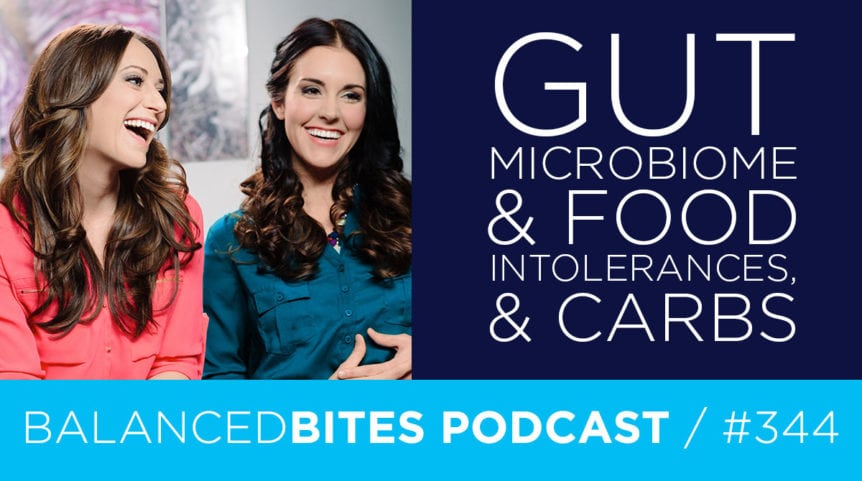


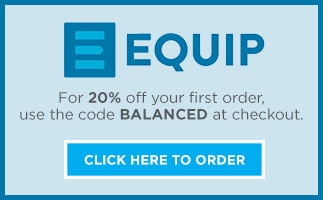
Comments 1
Pingback: 30 experts speak out on the importance | The Balanced Life